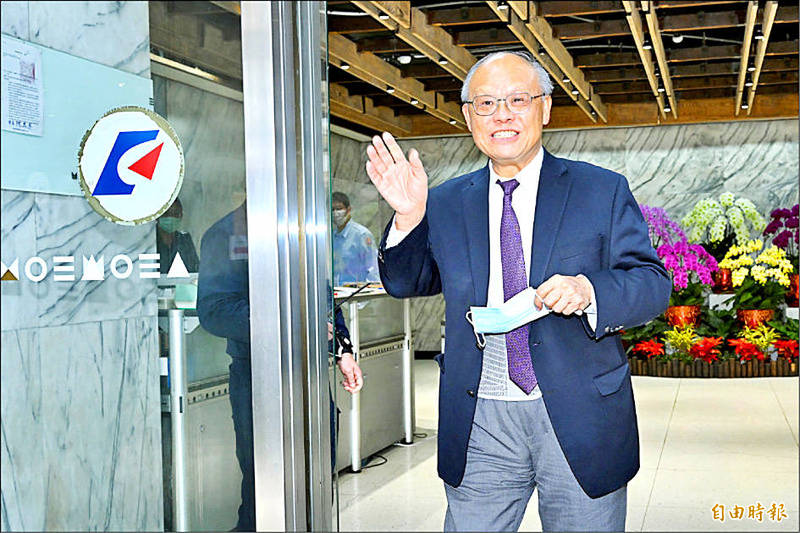《TAIPEI TIMES》 John Deng calls on US to widen chip subsidy rules

Minister Without Portfolio John Deng waves at reporters in Taipei in an undated photograph. Photo: Chung Li-hua, Taipei Times
/ Staff Writer, with CNA, Washington
Taiwan’s top trade negotiator on Thursday urged Washington to subsidize the US investments of Taiwanese semiconductor makers and producers of semiconductor materials.
Minister Without Portfolio John Deng (鄧振中), who is in Washington for the SelectUSA Investment Summit, appealed for financial assistance for Taiwanese companies under the US’ CHIPS and Science Act in a meeting with US Secretary of Commerce Gina Raimondo.
Under the act, the US government is to inject US$52.7 billion into its semiconductor industry by using tax and investment credits to subsidize semiconductor investment.
In the middle of March, the US Department of the Treasury proposed rules for the credits, saying they should be equal to 25 percent of an “eligible taxpayer’s qualified investment in a facility with the primary purpose of manufacturing semiconductors or semiconductor manufacturing equipment.”
The proposed rules, which are open to comment until May 22, do not appear to discriminate against foreign semiconductor producers, but they indicate that suppliers of semiconductor materials that invest in the US would not be eligible for the credit.
However, the Treasury Department left the door open for makers of certain materials by asking for comment on the term “semiconductor” and whether it should include “semiconductive substances” such as wafers.
Deng said he he told Raimondo that Taiwanese semiconductor companies would likely face higher investment costs in the US than in Taiwan and that he hoped they would be eligible for financial assistance.
He said he suggested that the CHIPS Act not only provide subsidies to semiconductor manufacturers, but also to companies in the supply chain, such as equipment makers and raw material providers, to encourage Taiwanese companies to invest in the US.
The suggestion received a positive reaction from Raimondo, he said.
Taiwan Semiconductor Manufacturing Co (TSMC, 台積電), the world’s largest contract chipmaker, is investing US$40 billion to build two advanced wafer fabs in Arizona.
The first new site, using TSMC’s 4-nanometer process, is scheduled to begin mass production next year, and the second fab, using the more advanced 3-nanometer process, is slated to mass produce chips from 2026.
TSMC is seeking subsidies for the factories under the CHIPS Act, but TSMC chairman Mark Liu (劉德音) in March said that certain supplementary restrictions and regulations in the proposed rules were “unacceptable.”
To get subsidies under the CHIPS Act, chipmakers must agree not to expand capacity in “foreign countries of concern,” such as China, for a decade and cannot engage in any joint research or licensing efforts involving sensitive technologies with those countries, the proposed rules say.
In addition to TSMC, Taiwan-based GlobalWafers Co (環球晶圓), the world’s third-largest supplier of silicon wafers, is eyeing subsidies under the CHIPS Act for a US$5 billion 12-inch silicon wafer plant it is building in Sherman City, Texas.
新聞來源:TAIPEI TIMES



















